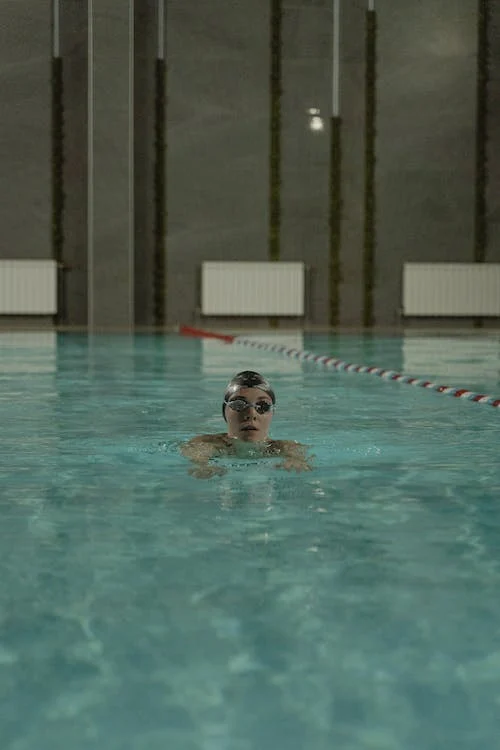Swimming Increase Height: Does Swimming Increase Height?
The desire to be tall is a common aspiration for many. It’s no surprise that people have been searching for ways to increase their height, and one popular belief that has gained traction is that swimming can lead to height growth.
But have you ever wondered if spending hours in the pool can actually make you taller? It’s a question that has crossed the minds of many, especially those who are enthusiastic about swimming.
The idea of gaining a few extra inches by doing something as enjoyable as swimming sounds almost too good to be true.
Advertisements

We will dive into the depths of this topic and explore whether there’s any truth to the claim that swimming increase height.
In this article, we will break down the science behind the connection between swimming and height.
We will explore the factors that contribute to our height, the role of exercise in our growth, and how swimming specifically fits into the equation.
So, if you’re curious about whether your laps in the pool could lead to a taller you, keep reading to find out the facts and bust the myths.
Advertisements
Why Do People Believe That Swimming Increase Height?
Many people think that swimming can make you taller for a few reasons. When you swim, your body stretches in a special way.
Imagine moving smoothly in the water, your body making gentle and rhythmic motions that might look like they’re helping you grow.
Also, the way you hold your body while swimming, with a long back and stretched-out arms and legs, can make it seem like you’re taller.
Because of these things, many people believe that if you swim often, you can get taller.
Does Swimming Increase Height?
The thought that swimming can make you taller comes from the idea that when you stretch your body while swimming, it might help you grow taller.
People who believe in this idea say that the water floating effect takes the pressure off your spine, letting it stretch out, which could lead to getting taller.
While swimming offers a lot of physical and mental benefits, there is not much solid scientific proof that it can make you taller.
The buoyancy of water does indeed reduce pressure on the spine, but the extent to which this can lead to height growth is questionable.
Growth plates are primarily responsible for height growth, growth plates are influenced by factors like genetics, hormones, and nutrition rather than the stretching of the spine.
Human growth is primarily influenced by genetics and hormones, especially during puberty. The growth plates at the ends of long bones are responsible for the increase in height during this period.
After you finish going through puberty, which is when you have grown a lot, your growth plates close up. When that happens, it’s not very likely that you’ll get much taller.
Numerous studies have been conducted to investigate the connection between swimming and height growth.
One study published in the Journal of Pediatrics found that regular swimming did not significantly impact the height growth of children.

The study concluded that while swimming is a great exercise, it does not have a substantial effect on increasing height. So, does swimming increase height? No, it does not.
If you’re looking to maximize your height potential, focusing on a balanced and nutrient-rich diet is important.
Adequate intake of vitamins, minerals, and protein is essential for the proper development of bones and muscles. This plays a more significant role in height growth than engaging in a specific exercise like swimming.
READ ALSO: 15 Swimmer’s Sportsmanship Qualities That Define A Great Swim Athlete
The Science behind Height Growth
In this section, we will go deep into the science behind swimming and height growth. Below are scientific factors that contribute to height growth:
Factors that Contribute to Height Growth
- Genetics: Genetics play a leading role, as they dictate your height potential based on your family history. Growth plates, located at the ends of long bones, also have a significant say in how tall you will become. These plates are more active during puberty, which is when growth spurts occur.
- Hormones: Hormones, particularly growth hormones, play a pivotal role during this time, ensuring that your bones grow at a healthy rate.
- Nutrition: Nutrition is the fuel that powers your growth. A balanced diet rich in vitamins, minerals, and proteins provides the necessary building blocks for bone development.
Common Lies about Swimming Influence On Height
- A Daily Swim will Increase Height:
People often think that swimming daily will guarantee height growth. However, the frequency of swimming doesn’t necessarily correlate with gaining height.
Even if you’re a regular swimmer, your growth plates will still close by the end of puberty, limiting any further increase in height.
- Diving Deep Adds Extra Inches to your Height:
The notion that diving deeply into the water can lead to stretching and taller stature is enticing.
But the reality is that the stretching effect is temporary and won’t translate into a permanent increase in height.
Growth plates determine height potential, and they’re unaffected by brief moments of elongation.
- Swim Strokes and Styles Increase Height:
Certain swimming styles, like breaststroke, have been associated with the belief that they can influence height growth more than others. However, there’s no scientific basis for this claim.

All swimming styles offer similar benefits in terms of fitness and health, but they don’t have a significant impact on height.
- Swimming at Early Stages Increase Height:
It’s often thought that starting swimming at a young age can lead to increased height.
While physical activities are essential for a child’s development, height growth is mainly determined by genetics. Early swimming may enhance overall health, but it won’t guarantee an increase in height.
- Stretching Exercises Help Gain Height:
Stretching exercises are sometimes recommended in combination with swimming to boost height.
While stretching can improve flexibility, it won’t significantly influence growth plates or make you taller. Genetics, hormones, and nutrition remain the key factors in determining height potential.
READ ALSO: Which Swimming Stroke Has a Wider Stroke than the Regular Style in the Swimming Sport?
Benefits of Swimming on Humans Overall Health
- It Improves Cardiovascular Fitness:
Imagine giving your heart a joyful workout without pounding it with high-impact stress. That’s exactly what swimming does. It gets your heart pumping while being gentle on your joints.
The water’s resistance offers resistance training for your heart muscles, helping to improve its efficiency and overall cardiovascular health.
Every stroke you take and every lap you conquer boosts your cardiovascular fitness. This means a healthier heart, improved blood circulation, and reduced risk of heart disease.
- It is a Full-Body Workout:
Jumping into the water engages more muscles than you can count. From your arms to your legs, and your core to your back, every movement in the water works your entire body.
So, while you’re enjoying the water, your muscles are getting stronger and more toned.
- Gentle on Joints, Strong on Muscles:
One of the magical things about swimming is that it’s easy on your joints. Unlike high-impact activities, swimming’s buoyancy cushions your joints, making it an excellent choice for all ages.
But don’t be fooled by the gentle nature, swimming is a muscle-building powerhouse. Those strokes against the water create resistance that strengthens your muscles.
- Mental Stress Relief:
Swimming isn’t just a workout for your body; it’s a spa day for your mind. The rhythmic sound of water and the soothing environment of a pool have a calming effect.
It’s like meditation in motion, reducing stress, and anxiety, and boosting your mood.
- It Helps When It Comes To Weight Loss:
If you’re aiming to shed some pounds, swimming can be your secret weapon. The water’s resistance means you burn calories without even realizing it.

Plus, swimming promotes lean muscle growth, which helps increase your metabolism and torch those extra calories.
- It Improves Lung Capacity for Easy breathing:
Swimming isn’t just about staying afloat; it’s about controlled breathing. This enhances your lung capacity and makes your respiratory system stronger.
- It is a Lifelong Skill:
Learning to swim isn’t just a childhood adventure; it’s a life skill. Whether you’re at the beach, by a lake, or just hanging out at the pool, being a confident swimmer can save lives.
Plus, knowing how to swim encourages a healthy relationship with water and an active lifestyle.
READ ALSO: What Happens When Swimmers Tie for Gold in a Competition?
Conclusion
In conclusion, the idea that swimming can significantly increase height is more of a myth than a scientifically proven fact.
While swimming is an excellent exercise with a lot of health benefits, its impact on height growth is limited.
Genetics, hormones, and nutrition play a more significant role in determining one’s height potential.
So, while you may not grow taller by swimming, you will undoubtedly enjoy improved fitness, increased strength, and enhanced mental well-being.
Remember, staying active through swimming or other exercises is essential for a healthy life, regardless of its direct effect on height.
So, dive into the pool, have fun, and embrace the plenty of benefits that swimming brings to your overall health!



